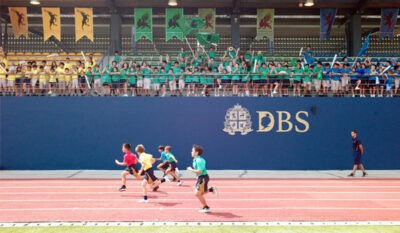
- ABOUT US
- SCHOOL LIFE
- ADMISSIONS
- CALENDAR
- CONTACT US
- PARENT
- EVENTS
โปรดติดตามภาษาไทยด้านล่าง
Sport is a paradox. It is a finite game wrapped in an infinite game. You can ‘win’ a football match, a chess game, a round of golf but you cannot ‘win’ sport. It will be here long after we are gone. Just like we cannot ‘win’ business or health. They are infinite games and we need to approach them with an infinite mindset.
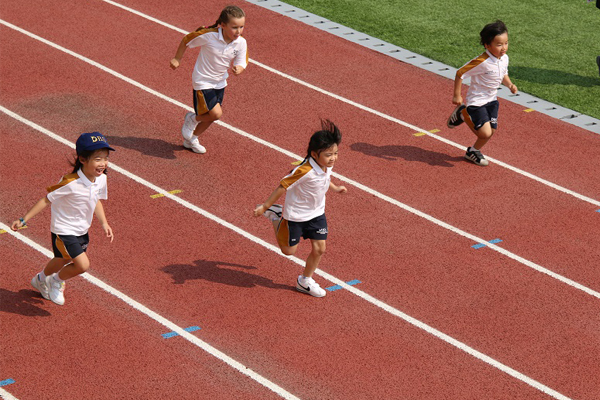
I have long believed that how we guide the pupils in our care to view winning and losing, success and failure is absolutely key to how they will view life in general. It is process versus outcome at it’s purest. In PE and Games we have the opportunity to expose them to winning and losing on an industrial scale. We can weave it subtly into every lesson. But it is where we attach the importance that is key. If a teacher or coach focusses on the end point, the outcome, the ‘win’ then they are engendering a certain mindset in the pupils. One that says losing is worth less than winning. And if you don’t win, you are worth less. It’s frightening how many pupils I’ve taught over the years that believe their ability is tied to whether they win or not and not many of those pupils are still competing at a high level.
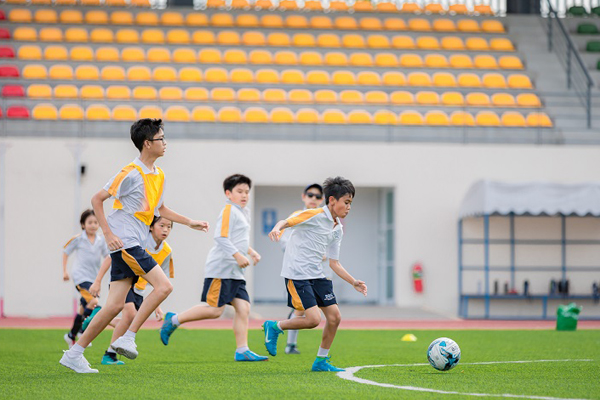
What if we started to place far more importance on the process? The hard work. The doing. If you listened carefully to many of the Olympic athletes in Tokyo then you will have heard a common theme. About “executing a plan” or “being their best” and the result was almost an afterthought. “I couldn’t have done any more” is a process based conclusion that people playing with an infinite mindset are comfortable sharing. There was barely an athlete that placed importance on winning over being their best self on that particular day. An interesting fact is that the Scottish Commonwealth games team in the 2000’s were asked by a sports psychologist how many of them were at the top of their sports when they were at school. Almost none were. Top 3? A handful. The vast majority were around the top 10 or lower. And every time they beat someone above them who had placed their importance on the outcome, being a “winner”, they overtook them and those “winners” weren’t heard of again. They were playing an infinite game with a finite mindset.
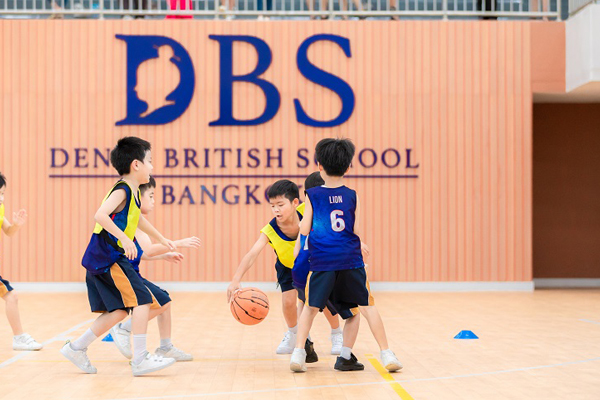
So how do we make sure that our pupils approach life with a mindset that will see them flourish? It’s in the language we use. And we have to back up what we say with how we act. Perhaps when we win matches in the future we could claim that as an ‘ahead’ day. And if we lose, it’s ok, it’s a ‘behind’ day. They don’t last. Words and phrases like hard work, effort and excellent are far more powerful than talented, gifted or perfect. Praise a pupil for their hard work and the evidence suggests that they work hard the next time because they can. Praise a child for their natural talent and see what happens the first time they fail, the first time that their natural talent isn’t enough to succeed. Does that mean they’re not ‘talented’ any more? Of course not. But it might do to them.
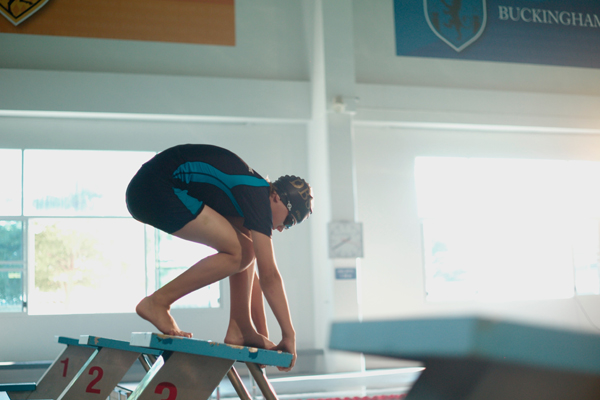
But perhaps most importantly we encourage a mindset to play. We take away the importance of winning over playing. The subtle distinction is that in a finite game, such as football, where there are agreed rules and structure and a set time, your best thinking is done beforehand and you can only win, lose or draw. And you try to win before you start. But with play, all of your best thinking is ahead of you. You expect to be surprised and you adapt to that that surprise. It’s how the army prepare soldiers.
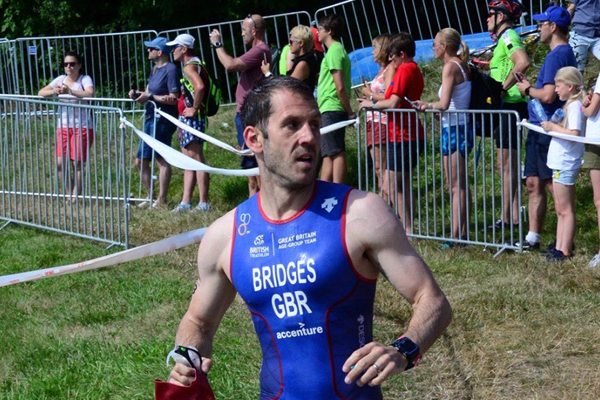
Ben has been a Teacher and professional coach of Football (FA Level 3) and Triathlon (BTF Level 3) for 16 years. Starting as a PE teacher and Head of PE in the British State sector at secondary school level he has taught in private prep schools for the last 10 years as Head of Boys Games, Head of Year and Director of Sport. Ben is passionate about innovation in education and providing every pupil with the opportunity to discover a sport that they can be passionate about for a lifetime. Ben is a keen Triathlete and has represented Team GB twice at the European Middle Distance Triathlon Championships, in his Age Group.
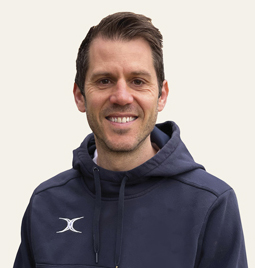
ผมชอบที่จะชนะ ผมมั่นใจว่าคนส่วนมากก็ชอบชัยชนะ แต่คำถามของผมคือ ใครคือคนที่นิยามความหมายของคำว่าชัยชนะที่แท้จริง? และมันมีสิ่งนั้นที่เรียกว่า “ชัยชนะ” จริง ๆ หรือ?
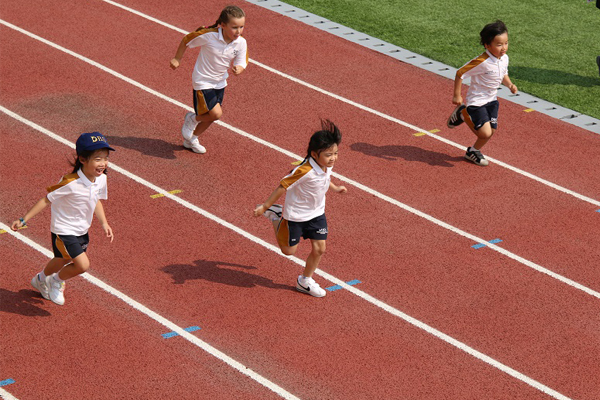
กีฬานั้นมีความย้อนแย้งในตัวเอง มันเป็นเกมที่มีการกำหนดกฎกติกาไว้อย่างชัดเจน แต่ขณะเดียวกันก็เป็นเกมที่ไม่กฎตายตัวได้ในเวลาเดียวกัน คุณสามารถ “คว้าชัยชนะ” เอาไว้ได้ในการแข่งขันฟุตบอล หมากรุก หรือกอล์ฟ แต่คุณจะไม่สามารถ “เอาชนะ” กีฬาได้ไปจนสุดทางเลย และมันจะเป็นเช่นนี้ไปตลอดเช่นเดียวกับที่เราไม่สามารถเอาชนะธุรกิจใดธุรกิจหนึ่งได้ หรือเอาคว้าชัยชนะเหนือสุขภาพของเราได้ มันเป็นเกมที่ไม่มีวันสิ้นสุดและเราต้องทำความเข้าใจสิ่งนี้ด้วยกรอบความคิดแบบไร้ขอบเขต
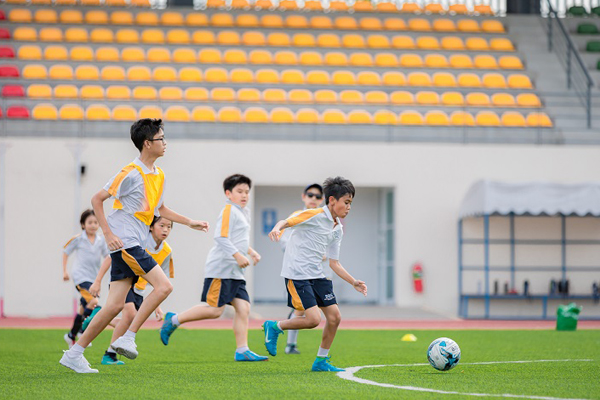
ผมเชื่อมาตลอดว่าการสอนนักเรียนให้ทำความรู้จักกับ ‘ชัยชนะและความพ่ายแพ้’ ‘ความสำเร็จและความล้มเหลว’ นั้นเป็นกุญแจสำคัญอย่างยิ่งต่อทัศนคติของพวกเขาในการมองโลก ทัศนคติที่แท้จริงต่อกระบวนการกับผลลัพธ์ของกระบวนการนั้น ๆ นักเรียนจะมีโอกาสได้รู้จักคำว่าชนะและพ่ายแพ้ในระดับที่ใหญ่ขึ้นในกีฬาและเกมส์ ซึ่งเราสามารถปลูกฝังเรื่องนี้เข้าไปทีละเล็กละน้อยในทุก ๆ บทเรียน แต่จุดที่เราต้องเน้นและให้ความสำคัญของเรื่องนี้ต่างหากที่เป็นตัวแปรหลัก หากครูมุ่งเน้นและให้ความสนใจที่ผลลัพธ์ซึ่งคือ ‘ชัยชนะ’ เพียงอย่างเดียว นักเรียนก็จะถูกปลูกฝังให้มีความคิดว่าจะต้องเอาชนะเพียงด้านเดียวเท่านั้น บางคนที่คอยบอกว่าความพ่ายแพ้มีค่าน้อยกว่าชัยชนะ และว่าหากเราไม่ชนะนั้นจะด้อยค่าเรานั้น ช่างเป็นคำพูดที่น่าตกใจอย่างยิ่ง ซึ่งผมพบว่านักเรียนหลายคนที่ผมเคยสอนในตลอดหลายปีที่ผ่านมาก็มีความเชื่อแบบนี้ว่า ความสามารถของพวกเขาขึ้นอยู่กับการที่พวกเขาชนะหรือแพ้ และนักเรียนหลายคนที่คิดแบบนี้ก็ไม่ได้เข้าแข่งขันใด ๆ อีกเลย
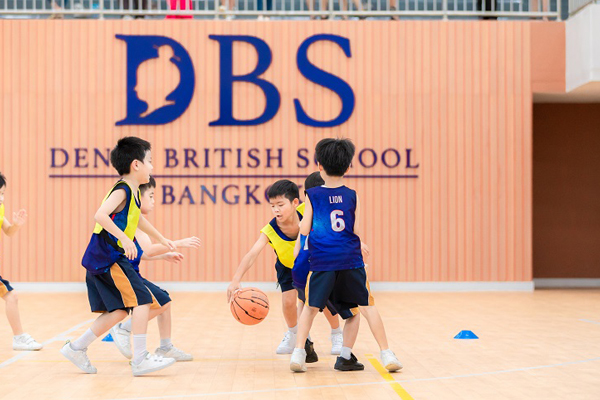
จะเกิดอะไรขึ้นหากเราเริ่มให้ความสำคัญกับกระบวนการมากขึ้น? ความเพียรพยายาม การฝึกฝน หากคุณตั้งใจฟังนักกีฬาหลาย ๆ คนที่ให้สัมภาษณ์ในการแข่งกีฬาโอลิมปิกส์ที่กรุงโตเกียวที่ผ่านมา คุณก็จะได้ยินหัวข้อการพูดคุยส่วนใหญ่ที่เกี่ยวกับ “การดำเนินการตามแผน” หรือ “การทำให้ดีที่สุด” ส่วนผลลัพธ์ของการฝึกฝนนั้นมักเป็นความคิดเกือบสุดท้ายของพวกเขาเลยทีเดียว “ฉันทำอะไรมากไปกว่านี้ไม่ได้แล้ว” มักเป็นข้อสรุปของคนที่มีกรอบความคิดแบบไร้ขอบเขตพูดคุยกันได้อย่างสบายใจ แทบจะไม่มีนักกีฬาคนไหนเลยที่ให้ความสำคัญกับชัยชนะมากกว่าการทำที่ตัวของตัวเองทำอย่างดีที่สุดในการแข่งขันวันนั้น ๆ แล้ว อีกข้อเท็จจริงที่น่าสนใจคือ นักจัตวิทยาการกีฬาได้เคยสัมภาษณ์นักกีฬาของทีมสกอตแลนด์ในการแข่งขันกีฬาในเครือจักรภพปี 2000 ไว้ โดยถามพวกนักกีฬาเหล่านั้นว่า เมื่อตอนที่พวกเขายังเป็นนักเรียนที่โรงเรียน ใครบ้างเป็นนักกีฬาที่มีฝีมืออันดับต้น ๆ ของโรงเรียนในขณะนั้น คำตอบคือ แทบจะไม่มีใครเลยที่ติด 3 อันดับแรกของโรงเรียน มีแต่เพียงจำนวนหนึ่งเท่านั้น ขณะที่ส่วนใหญ่แล้วจะอยู่ประมาณ 10 อันดับแรกของโรงเรียนหรือต่ำกว่านั้น และเมื่อไรก็ตามที่มีใครสักคนให้ความสำคัญแค่ผลลัพธ์ในฐานะผู้ชนะ “ผู้ชนะ” ผู้นั้นก็จะถูกคนอื่นตามทันและเอาชนะได้ในที่สุด และ “ผู้ชนะ” ผู้นั้นก็จะไม่ได้ยินคำว่าชัยชนะอีกต่อไป ที่เป็นอย่างนี้เพราะว่าผู้ที่เคยชนะเหล่านั้นกำลังเล่นเกมส์ที่ไร้ขีดจำกัดด้วยกรอบความคิดแบบมีข้อจำกัดอยู่
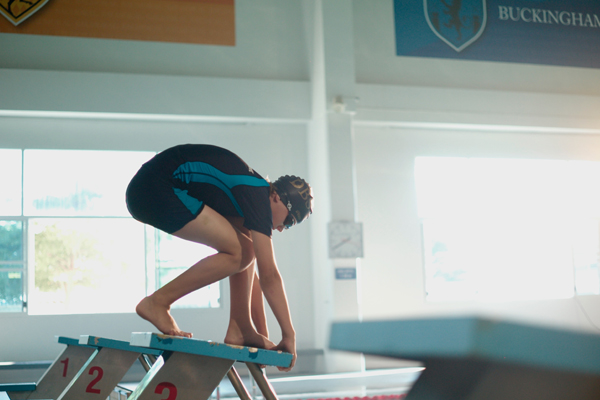
แล้วเราจะแน่ใจได้อย่างไรว่านักเรียนของเราดำเนินชีวิตของพวกเขาด้วยกรอบความคิดที่ทำให้พวกเขาประสบความสำเร็จ? เราสามารถสร้างสิ่งนั้นได้ผ่านภาษาที่เราใช้กับนักเรียนของเรา และสิ่งที่เราพูดกับนักเรียนก็ต้องมีหลักฐานมาสนับสนุนคำพูดนั้นด้วย เช่นในบางครั้งเมื่อเราชนะการแข่งขัน เราอาจพูดว่ามันเป็น ‘วันข้างหน้า’ และถ้าวันนั้นเราแพ้ เราพูดว่าไม่เป็นไร มันแค่เป็น ‘วันที่ผ่านไปแล้ว’ ชัยชนะและความพ่ายแพ้นั้นไม่ได้ยั่งยืนเสมอไป คำพูดและประโยค เช่น พยายามเต็มที่ ทำงานอย่างหนัก และมันยอดเยี่ยมมาก นั้นมีพลังมากกว่าคำว่า ความสามารถพิเศษ พรสวรรค์ หรือความสมบูรณ์แบบ เสียอีก มีผลชี้วัดออกมาว่าการที่เรากล่าวชื่นชมนักเรียนที่พยายามอย่างเต็มที่นั้นจะยิ่งส่งเสริมให้พวกเขาพยายามมากขึ้นอีกในครั้งต่อไป เพราะพวกเขาเชื่อว่าตนมีความสามารถและตนทำได้ ในทางตรงกันข้าม การกล่าวชื่นชมนักเรียนที่มีพรสวรรค์มาแต่กำเนิด และดูสิว่าเกิดอะไรขึ้นเมื่อพวกเขาต้องเผชิญกับความล้มเหลวเป็นครั้งแรก ครั้งแรกที่พรสวรรค์ตามธรรมชาติของพวกเขาอาจไม่เพียงพอที่จะทำให้สิ่งที่พวกเขาหวังสำเร็จลุล่วง สิ่งนี้หมายความว่าพวกเขาไม่มี ‘พรสวรรค์’ อีกต่อไปแล้วงั้นหรือ? ไม่ใช่อย่างแน่นอน แต่มันอาจทำให้พวกเขาคิดเช่นนั้นว่าพวกเขาไม่ไม่พรสวรรค์อีกต่อไปนั่นเอง
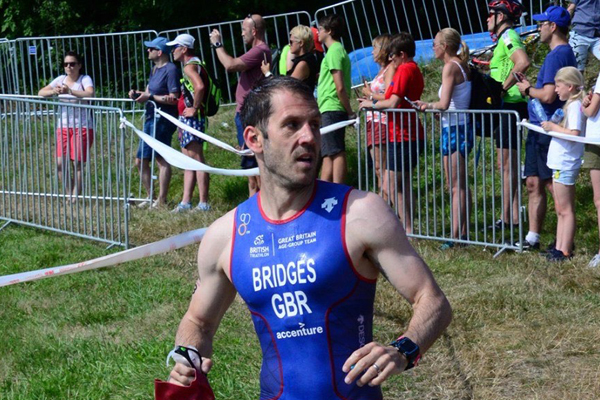
แต่บางที สิ่งที่สำคัญที่สุดคือเราต้องสนับสนุนให้พวกเขามีเป้าหมายในการได้เล่นสนุกมากกว่าการเล่นเพื่อชัยชนะ เราลองทิ้งความสำคัญของชัยชนะเหนือการเล่นออกไป แล้วเราจะพบว่ามันสร้างความแตกต่างได้อย่างมากเลยทีเดียว เกมส์กีฬาที่มีกฎเกณฑ์ชัดเจนและเวลาจำกัด เช่น ฟุตบอล นั้น ก่อนเริ่มเกม คุณจะต้องเตรียมแผนการเล่นไว้ล่วงหน้า แผนที่จะทำให้คุณสามารถชนะ แพ้ หรือเสมอได้เท่านั้น คุณวางแผนเพื่อเอาชนะก่อนที่คุณจะเริ่มเล่นด้วยซ้ำ แต่สำหรับการเล่นสนุกแล้วนั้น ความคิดที่ดีที่สุดทั้งหมดของคุณจะเกิดขึ้นกับคุณโดยไม่ได้คาดคิดมาก่อน และคุณจะต้องปรับการเล่นให้เข้ากับสถานการณ์ตรงหน้าเหล่านั้น นั่นเป็นวิธีที่กองทัพใช้ในการเตรียมตัวทหารสำหรับการออกรบ
การเล่นสนุกก็เปรียบเหมือนชีวิต ความคิดที่ดีที่สุดจะเกิดขึ้นโดยไม่คาดคิด มันเป็นความคิดที่ไร้ขอบเขต และสนุกมากด้วย
เบนเป็นครูและโค้ชมืออาชีพด้านฟุตบอล (FA ระดับ 3) และไตรกีฬา (BTF ระดับ 3) มาเป็นเวลากว่า 16 ปี เบนเริ่มจากการเป็นครูพละและหัวหน้าแผนกพลศึกษาในระดับมัธยมศึกษาที่โรงเรียนรัฐบาลของอังกฤษ ต่อมาเขาได้ย้ายไปสอนในโรงเรียนประถมเอกชนในช่วง 10 ปีที่ผ่านมา และได้ดำรงตำแหน่งต่าง ๆ มากมาย ทั้งหัวหน้าเกมส์และกีฬาชาย หัวหน้าชั้นปี และผู้อำนวยการกีฬา เบนหลงใหลในนวัตกรรมด้านการศึกษาและเขาเปิดโอกาสให้นักเรียนทุกคนได้ค้นพบกีฬาที่พวกเขารักไปตลอดชีวิต เบนเป็นนักไตรกีฬาตัวยง เขาได้เป็นตัวแทนของทีม GB ถึงสองครั้งในการแข่งขัน European Middle Distance Triathlon Championships ในกลุ่มอายุของเขา
